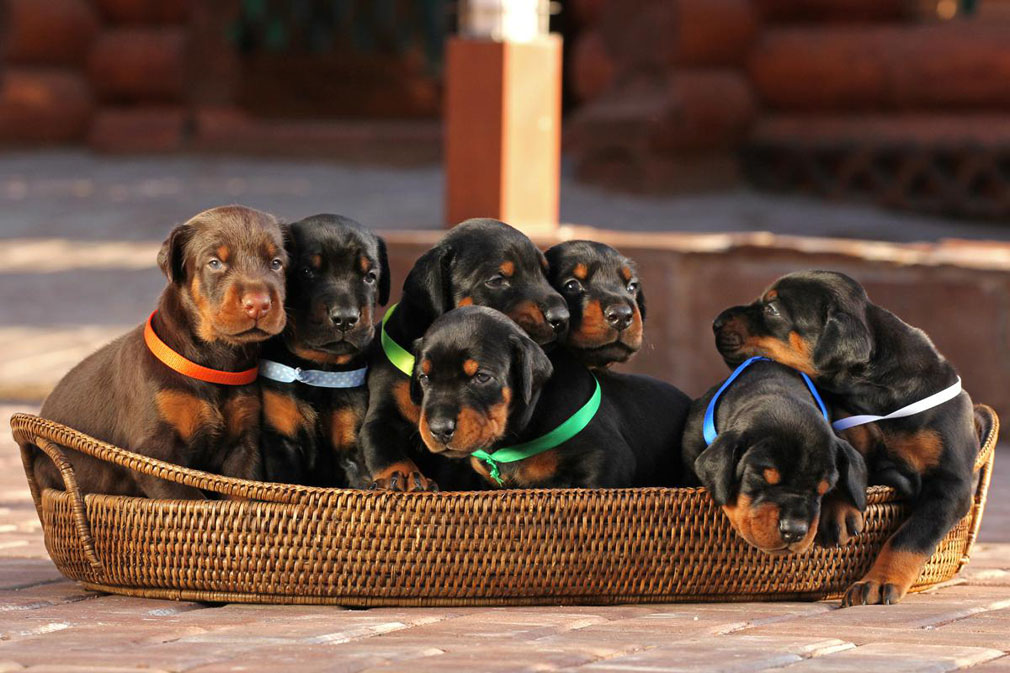Doberman


 Puppy
Puppy
 Fully Grown
Fully Grown
Dobermans are sensible, faithful and smart dogs. They have a friendly temperament and due to their watchfulness they can easily be trained to be very good guard dogs. Early socialisation is very important for Dobermans.
Their strong and muscular build and lean stature makes them physically impressive. Dobermans are confident by nature and get very attached to their owners. They are very loyal, eager to learn and to please. Being in the Top 10 smartest dog breeds, teaching them a new trick or command is very easy.
Dobermans are sensitive and gentle and can be great with kids and other animals, when socialised with them from a very early age.
The combination of loyalty and protective instinct make Dobermans a great guard dog - if the owner wants to focus on developing this trait. Training and keeping their minds active is important for this obedient breed. With the right training, a Doberman might even be able to help with loading the washing machine or putting the kids to bed!
| Weight: | 38-45 kg |
| Health risk: | High |
| Life expectancy: | 10-13 years |
| Coat: | Short |
| Grooming intensity: | Low |
| Monthly cost (food): | Above average |
| Trainability: | High |
| Activity level: | Medium |
There are many sources to get your Doberman from. Considering the number of homeless dogs without a future, we strongly encourage you to consider rescuing a dog. Your local shelter or rescue organisation can be a helpful place to start, or try contacting your local or national breed club or a reputable breeder and asking if they have pets available for rehoming. Many rescue organisations have active Facebook pages, which can also be a good place to enquire.
Here are some links that could be useful for finding a Doberman to adopt:
To help your rescued Doberman to settle into your home, our Rescue Dog Guide gives you tips and advice on bringing your rescue dog home.
If you decide you’d prefer to get your Doberman from a breeder, the following guides will help you to find a responsible breeder:
The following organisations will be able to help you find breeders in your state in Australia. They will also be able to connect you with your local breed clubs, which are always a great source of information in regards to finding good breeders and rescue organisations.